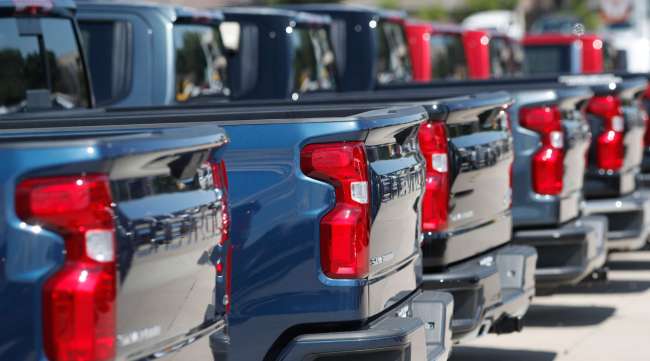GM Recalls Pickups for Second Time on Software Glitch

[Stay on top of transportation news: Get TTNews in your inbox.]
DETROIT — General Motors is recalling about 162,000 full-size pickup trucks worldwide for a second time because of faulty brake control software that was installed in a recall from last year.
Affected are Chevrolet Silverado and GMC Sierra light-duty trucks from the 2019 model year. The Silverado is GM’s most popular U.S. vehicle.
The saga began in December when GM announced it would recall about 550,000 pickups and Cadillac CT6 sedans globally to fix a software error that can disable the electronic stability control and anti-lock brakes. If those features don’t work, it can increase the risk of a crash.
The new software was installed in about 162,000 vehicles, but GM started getting reports that it was causing other problems, according to documents GM filed with the U.S. National Highway Traffic Safety Administration.
In part two of a two-part exploration of autonomous technology today, our latest RoadSigns podcast revisits conversations with Chuck Price of TuSimple and Ognen Stojanovski of Pronto.ai. Hear them discuss a palatable Level 2 version of trucking autonomy. Listen to a snippet above, and to hear the full episode, go to RoadSigns.TTNews.com.
If the vehicles are started remotely using a GM mobile phone app or the driver gets in the vehicle and waits five or more minutes before starting it, the software could disable the electronic power brake-assist system and turn on several dashboard warning lights, the documents said.
GM spokesman Dan Flores said the new problem showed up in about 1% of the vehicles that received the new software, which was corrected in January. The second problem didn’t show up in any Cadillac vehicles, Flores said.
The company has no reports of any crashes or injuries from the problem, Flores said.
Owners in the original recall will get letters notifying them to bring their vehicles to dealers for a software update. Those that received the faulty update will get a second letter starting Feb. 10.
Want more news? Listen to today's daily briefing:





